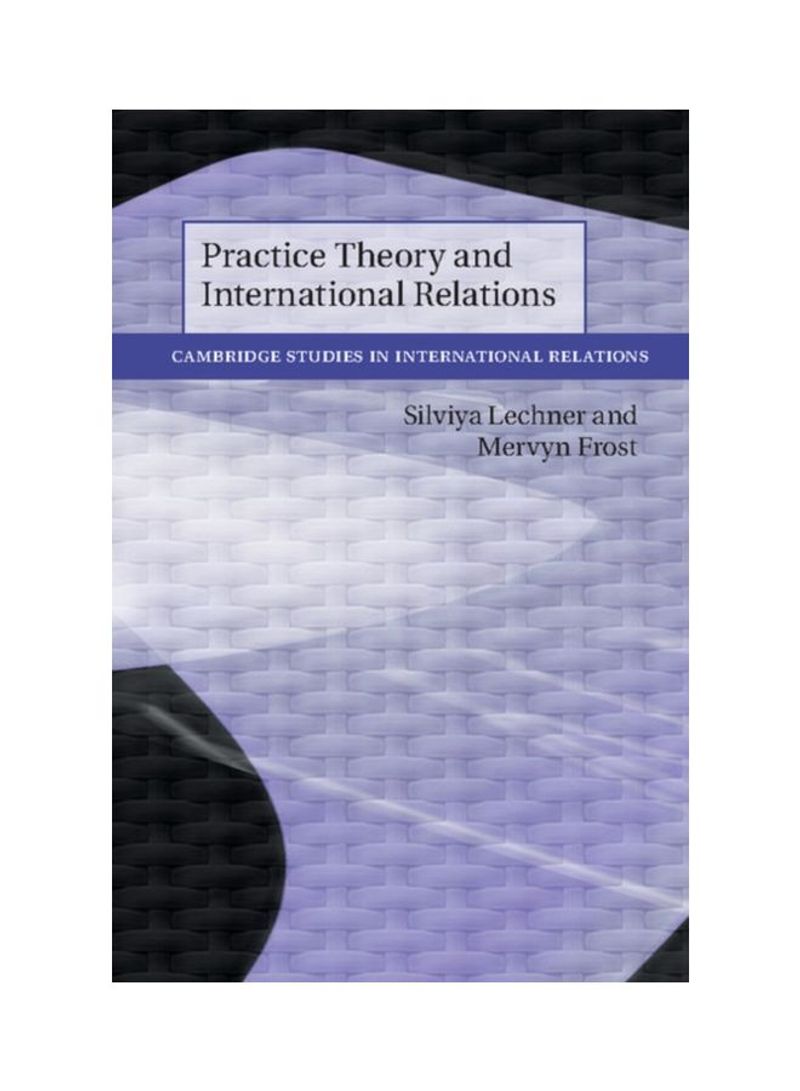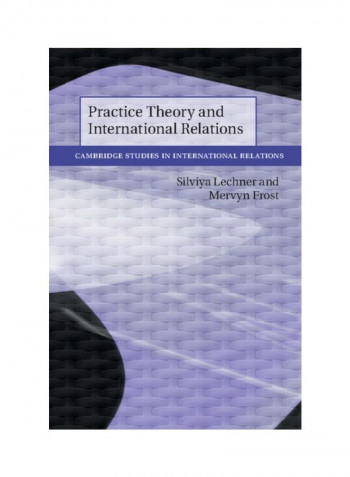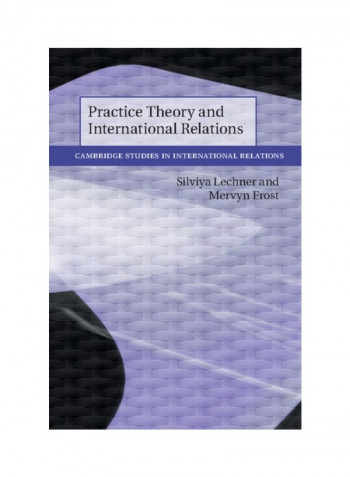Practice Theory And International Relations Hardcover
Recommend
Sort by
Rating
Date
Specifications
Grade
New
Author 1
Silviya Lechner
Book Description
Are social practices actions, or institutional frameworks of interaction structured by common rules? How do social practices such as signing a cheque differ from international practices such as signing a peace treaty? Traversing the fields of international relations (IR) and philosophy, this book defends an institutionalist conception of practices as part of a general practice theory indebted to Oakeshott, Wittgenstein and Hegel. The proposed practice theory has two core aspects: practice internalism and normative descriptivism. In developing a philosophical analysis of social practices that has a special relevance for international relations, Silviya Lechner and Mervyn Frost depart from Pierre Bourdieu's sociology of practice that dominates the current 'practice turn' in IR. The authors show that the contemporary global realm is constituted by two distinct macro practices - the practice of sovereign states and that of global rights.
ISBN-13
9781108471107
Language
English
Publisher
Cambridge University Press
Publication Date
19 Mar 2019
Number of Pages
258
About the Author
Silviya Lechner is a visiting researcher at King's College London, Department of War Studies, where she was previously a lecturer. She specialises in international relations theory and philosophy, especially social and political philosophy and philosophy of action. Her articles have appeared in the Journal of International Political Theory, the Review of International Studies, International Studies Review, Oxford Research Encyclopaedia on International Studies, The Hague Journal of Diplomacy and The American Journal of Bioethics. Mervyn Frost is Professor of International Relations in the Department of War Studies, King's College London and Senior Research Associate at the University of Johannesburg. His monographs include: Towards a Normative Theory of International Relations (Cambridge, 1986), Ethics in International Relations (Cambridge, 1996), Constituting Human Rights: Global Civil Society and the Society of Democratic States (2002) and Global Ethics: Anarchy, Freedom and International Relations (2008). He edited a 4 volume reference book of articles entitled International Ethics (2011).
Author 2
Mervyn Frost
Editorial Review
Lechner and Frost propose a genuinely novel way to advance practice theory in international relations (IR) theory by taking normativity into account. Based on careful scrutiny, the enterprise is conducted in a most succinct, elaborate and refreshingly accessible way. The result is a giant theoretical advance for IR theory. The book's value-added consists in developing a theoretical framework which successfully links practice and normativity. The book's advancement is largely due to first, distinguishing micro- and macro-practices and explaining why this matters, and second, theorising the internal and external meanings of practices, thereby offering a conceptual access point for socially constructed, societally or constitutionally constituted and politically challenged normativity. The book is of outstanding quality and highly recommended for students of international relations in political science, law and sociology.' Antje Wiener, Chair in Political Science, University of Hamburg 'A practice is not just a bunch of related activities. Rightly holding that a practice is a framework of rules, an institution, Lechner and Frost turn the practice turn on its head. And they do so with a philosophical sophistication all too rare in international relations.' Nicholas Onuf, author of Nations, Markets, and War and International Legal Theory 'Lechner and Frost's new book is a real contribution not only to the ongoing debate in international relations, which has discovered the 'practice turn' quite late, but also in giving the old controversies about explaining and understanding, structures and action, and micro versus macro analysis, a new direction. Its incisive and jargon-free treatment of the conceptual issues underlying social action and the reproduction of the social world will be read with profit by anyone in the social sciences and humanities.



